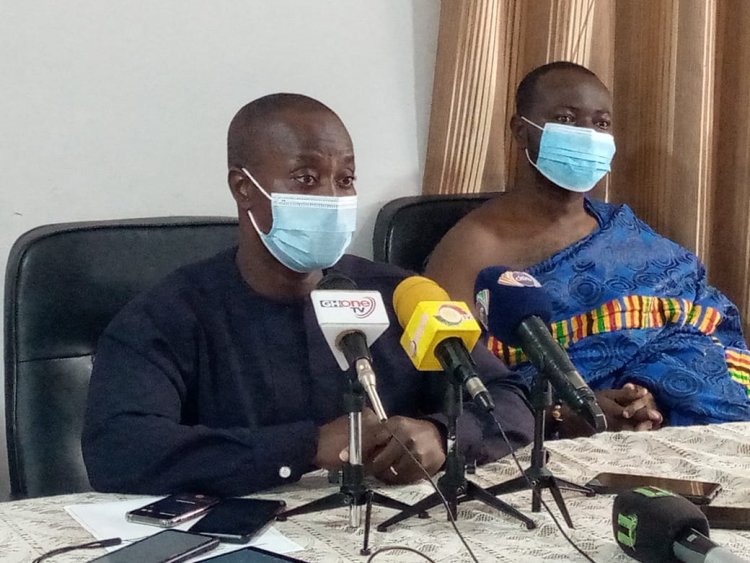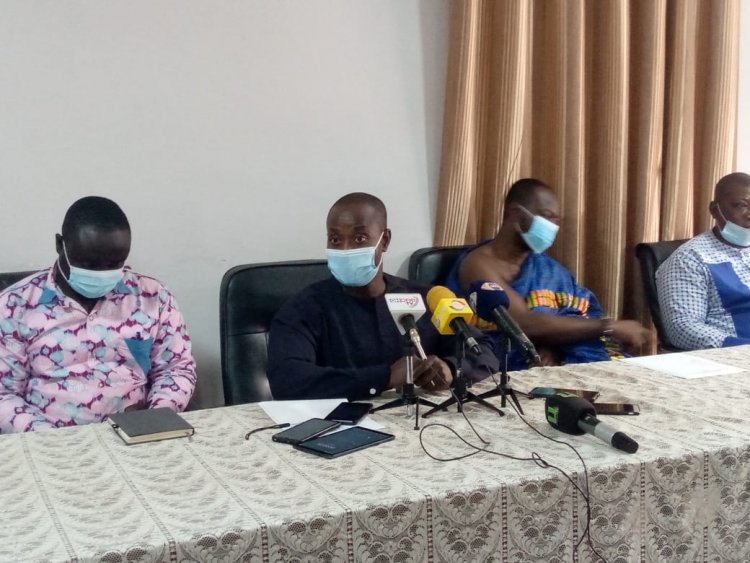Regional Health Directorate to educate adolescent on Sexual Reproductive Health
The focus is to use a wide range of activities to engage adolescents in high burden districts.

The Ashanti Regional Health Directorate will roll out a set of interventions to educate adolescents and young people on Sexual Reproductive Health and Rights.
This is because Adolescents and young people represent the future of the Country and investing in their health and development would be beneficial to the socio-economic development of the country.
Dr Michael Rockson Adjei, the Ashanti Regional Deputy Health Director in charge of public health briefing the media today about the sensitization said, investment in the health and development of young people would be beneficial to the country’s socio-economic development.
He was speaking to the Journalist in Kumasi during the launch of the Adolescents Health Communication programme for selected Adolescents Health Clubs in the Asante Akim South District of the Ashanti Region.
The sensitization programme was under the auspices of UNICEF in collaboration with the Regional Health Directorate.
The Ghana Health Service, which is one of the implementation partners, through its Adolescent Health and Development Programme identifies the out of school young people as a priority population for intervention activities.
“Adolescence is the transition from childhood to adulthood. This period is when young people become aware of their sexual and reproductive capacities as well as needs and consequently rely on their families, peers, schools and health service providers for affirmation, advice and information.

This transition may catalyse a range of challenges including HIV infection, other sexually transmitted infections (STIs), unintended pregnancy, low education attainment or dropping out of education and training.”
Dr Michael Rockson Adjei said physical health and non-health challenges may also impact negatively on young people’s development and welfare, particularly young women.
He said the Ghana Health Service, in line with its mandate, implemented programmes and interventions to provide comprehensive health services and accurate information on health to enable young people to make healthy choices.
He added that, because the young people were not a homogenous group, they needed multi-component of interventions to ensure total health benefits.
He said the GHS has taken advantage of different platforms, including the establishment of school-based adolescent and youth-friendly health services to reach all categories of young people.
Barimaba Boateng Frimpong I, Dwumankwaahene of Obogu and Educationist at Juaso Education office who was the chairman of the programme encouraged Ghanaian young girls and boys to be good examples for other Adolescents to emulate.
He said it is better to abstain from sex at the early stage in life and urged adolescents to always remember that rights came with responsibilities.
Berimaba Boateng Frimpong I mentioned the health services that are available at health facilities as counselling, health education, Family planning, ANC, and skilled delivery, among others.
He encouraged adolescents to visit the health centres for any of the services.






































